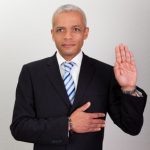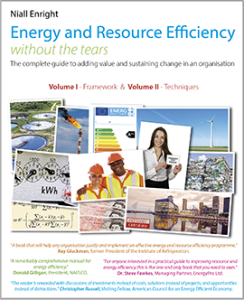 What gives us the right to declare ourselves “Sustainability Practitioners”? Is is our technical understanding that lifts us above narrow domain experts – e.g. climate change or energy efficiency or corporate reporting practitioners? Is it the level of people we engage with in our client organisations? Is it the multidisciplinary change management approach we employ?
What gives us the right to declare ourselves “Sustainability Practitioners”? Is is our technical understanding that lifts us above narrow domain experts – e.g. climate change or energy efficiency or corporate reporting practitioners? Is it the level of people we engage with in our client organisations? Is it the multidisciplinary change management approach we employ?
The more I think about this the more I am drawn to a much more fundamental definition: a Sustainability Practitioner is someone who delivers greater sustainability.
Sad to say that much of the environmental and social consulting profession – if we are honest to ourselves – is about enabling a status quo that is unsustainable. We create Environmental Impact Assessments that allow developments to go ahead; we back up planning applications for retail malls which depend on car journeys and draw people out of town centres; we create CSR and “stakeholder” campaigns which may simply divert attention from client’s unsustainable business model based on exploiting natural resources. Fact is that the biggest spenders in our field are oil and gas corporations and the biggest consultancies have a huge focus on the resources sectors – I know because I’ve worked there. That is not to say that resource extraction per se is bad, but we sure do need to acknowledge that it is rarely sustainable and that it often comes at a price for local communities.
In facing this conundrum I have long formed the view that only “preaching to the choir” is wrong. We can’t limit our services to the Ben and Jerry’s of this world. I can name companies like BP and Rio Tinto or BAT amongst my clients. I am proud to say that I have helped those organisations, in some small way, become more sustainable.
If lobbying is your aim then Consultancy is not the place to be. There are many fine and some not so fine NGO’s who provide an excellent platform to challenge the behaviours of governments, corporations and individuals. Consultancy is about providing expertise to solve specific problems on behalf of a client. As a consultant you cannot bring an agenda: by accepting your client’s fee you are dedicated to meeting their needs, not furthering your own. That’s the bottom line.
However is it enough to say that we should do anything our client asks? Can we claim to be a Sustainability practitioner if the consequence of our services is sometimes a reduction in sustainability? As a profession do we not have a collective responsibility to make our world a better place? Together we represent a huge proportion of the world’s knowledge and experience in sustainability issues. We are surely a key part of the solution.
So perhaps we need a set of universal principles to guide our profession. These principles recognise that through our work we have both a power to do good or a power to support that which is bad. Just as a medical professional adheres to a “Hippocratic oath”, perhaps to consider ourselves truly a profession we should adhere to some fundamental values.
Here’s my “back of a fag packet” Sustainability Practitioner Oath:
| 1 | I pledge that my first priority must be to meet the needs of my clients, not allowing any personal considerations to influence the provision of my service; and | we must not let current or future fees influence our advice |
| 2 | I will at all times give honest, impartial advice and opinion based on best available knowledge and practice, and will not allow through silence or omission for a falsehood to be conveyed; and | we have an obligation to “speak truth to power” where needed, and not stay silent |
| 3 | I pledge that under no circumstances will I use my skills or knowledge to diminish the balance of human or natural rights, or diminish the ability of future generations to enjoy these rights; and | that’s the big one… we pledge not to cause damage in the “balance” |
| 4 | I will lawfully respect the confidentiality of my clients at all times; and | lawfully means that if the client is breaking the law then we don’t have to remain silent |
| 5 | I will practice my profession with integrity, dignity and professionalism. I commit myself to maintain my knowledge and to support the development of my profession. | we have a duty to advance our profession and maintain our expertise |
Pledge three is tricky because many of the things we do involve trade-offs in some form – development may deliver jobs and prosperity but it may harm the natural environment in some way (although that damage can be mitigated elsewhere). Hence the use of the word “balance”. What we do should not, “in the balance”, cause harm. A judgement call for sure, but one which most professionals would be able to make. There are those who could argue that this “do no evil” commitment is weak and we should have a positive affirmation “we shall do good”. However, our first duty is to our client, so the phrasing of the pledge is practical.
The key thing is that these pledges are about outcomes, not process. It is the results of our service that matters. It is no defence to say that what we do complies with regulation if the result of our service enables harm to occur.
Of course, if we really want to professionalise then we would have some form of registration and enforcement of these key principles. Doctors and Lawyers are regulated by professional bodies who enforce fundamental principles of behaviour so the approach is well-established.
So, absent such a body, my challenge is to see if these principles can be applied in all the services I and SustainSuccess provide.
I will make sure this is the case.
It would be great if one or more of the major consulting firms created their own equivalent of this oath and made it public. It would be great if our educators challenged new students to adopt such principles. Feel free to use the words above above as a starting point or to contact me if you would like my input – I will give my time free of charge. Also a prize for someone who can think of a name for the Oath. Come on you classicists!.
For more ideas and challenges check out all the posts on this site.
Learn what an effective resource efficiency framework looks like.
Read reviews of books on the theme of change.
Or learn how SustainSuccess services can drive improvement in your organisation.



0 Comments